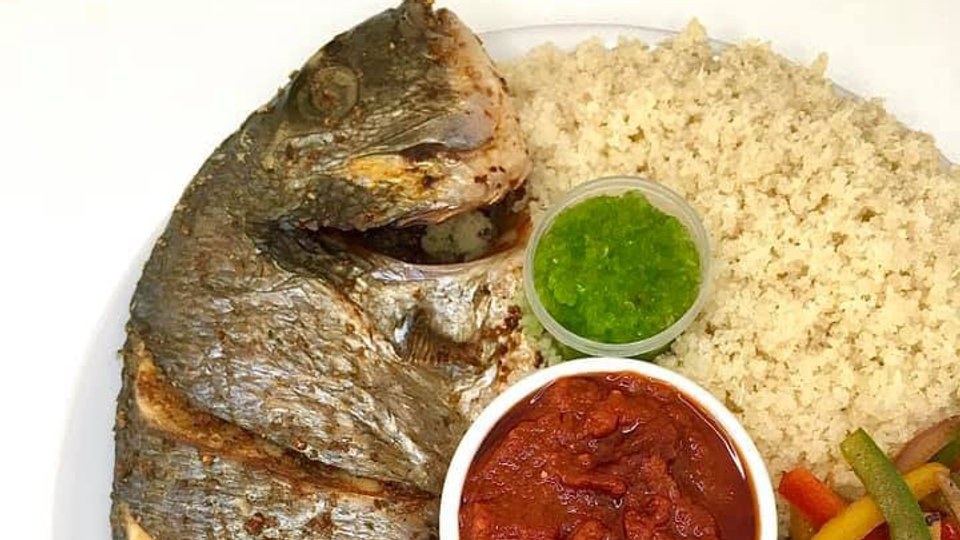Sport
Dollar
38,2552
0.34 %Euro
43,8333
0.15 %Gram Gold
4.076,2000
0.31 %Quarter Gold
6.772,5700
0.78 %Silver
39,9100
0.36 %The recent addition of Côte d'Ivoire's Attiéké food to the list of Intangible Cultural Heritage by the United Nations once again highlights the richness of Africa’s cuisines.

By Mazhun Idris
In Anyama-Adjamé, a suburb of Abidjan, Côte d'Ivoire's capital, almost every street has its own Attieke food factory.
Situated beneath palm and banana trees, you come across wooden sheds on platforms where women process cassava tubers. The process, spanning several days, begins with local women working from dawn to sunset.
They utilise hand-operated or fuel-powered grinding machines to grate peeled cassava roots.
Large cauldrons are used to steam the fermented mixture over open fires, employing mud stoves and stirring with wooden paddles. Next, they dry and sieve the coarse grits, storing them in large containers.
The end result is Attieke – coarse couscous-like granules packed in sacks and distributed by wholesalers in lorries and motorcycles across Abidjan.
Households and street food vendors buy and prepare Attieke meals. Pronounced "achekay", Attieke is a processed cassava dish renowned for its taste and affordability in Côte d'Ivoire and West Africa.
It has attained staple food status, defining daily menus in Ivorian households and restaurants. Sometimes called "garba", this traditional meal has been part of Ivorian culture for centuries, evoking pride as it's passed down generations across Africa.
Like couscous, Attieke is commonly garnished with grilled fish or meat, accompanied by sauce or diced vegetables, serving as a primary dish daily or during special occasions. It's a rich culinary heritage deeply rooted in Ivorian lives.
Global prominence
On 5 December 2024, UNESCO admitted Attieke to its list of humanity's intangible cultural heritage from Côte d'Ivoire. By achieving UNESCO heritage status, the delicacy is now counted among African people's culinary legacy.
The recognition covers customary skills and traditional techniques involved in making Attieke, a unique preserve of women and girls in West Africa. News of the recognition is celebrated beyond Côte d'Ivoire.

The UNESCO designation recognises Attieke as a dish made from steamed cassava tubers, produced by Côte d'Ivoire's lagoon peoples as a family meal and in restaurants.
Besides being a cultural identity, the food culture contributes to local women's and girls' financial autonomy, operating Attieke processing factories and passing on expertise across generations.
The decision by UNESCO means the food must ''be protected for future generations to appreciate and enjoy''.
Earlier in 2024, the African Intellectual Property Organisation registered a collective trademark preventing cassava meals produced elsewhere from being marketed as "Attieke".
Africa's Diverse Cuisines
Updated annually, the Intangible Cultural Heritage record encompasses local foods, drinks and skills.
Africa boasts historic food customs across regions, from Johannesburg to Cairo, Mogadishu to Nouakchott. Attieke's inclusion highlights African cuisine's prominence.
Recent additions to the UNESCO list include:
. 2020: Couscous, a Maghreb staple made from steamed durum wheat semolina.
.2022: Harissa, a Tunisian seasoning made with chili pepper paste.
.2016: Nsima, Malawian porridge made with maize flour.
Attiéké's UNESCO recognition celebrates Côte d'Ivoire's rich culinary heritage and its significance in African culture.
As African cuisine gains global recognition, Attiéké's inclusion underscores the continent's diverse and vibrant food traditions.
Comments
No comments Yet




















Comment